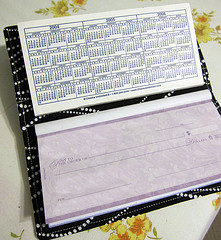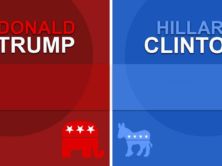
(credit: flickr)
Columbia Journalism Review recently featured an essay by Gawker’s John Cook questioning why journalism ethics advises against paying for sources. Cook highlighted a few high-profile and significant stories that were broken by news outlets that shelled out cash for their stories: For example, the National Enquirer’s reporting on the John Edwards-Rielle Hunter affair, and the Daily Telegraph’s reporting that British Parliament members had taxpayers supporting expenses on the Parliament members’ second home.
As Cook commented: “All of the above stories were true and important. None of them are less correct, or less pure, because filthy lucre was involved.” But, Cook noted, “The main objection to paying sources is that it corrupts the final product.” After all, will sources change their interview or offer more sensational information if they’re getting a payday out of it?
Cook argued that if paid sources provide information that can be “independently verified, it’s hard to see how the potential for a payday is different from the myriad other incentives there are for sources of news to invent or twist the information they provide to reporters.”
However, Stinky Journalism notes, journalism ethics codes like the SPJ’s code of ethics, advise against paying for news because it could create “bidding” wars.
iMediaEthics wonders why Columbia Journalism Review would lend its respected name to hosting such a controversial view, especially since Gawker admits to paying for information and stories. While the issue of paying for sources may be an interesting and debated one, Gawker obviously has a stake in this role. Since Gawker pays for sources, it naturally will defend the practice. But should Columbia Journalism Review host those views instead of forwarding a neutral analysis of both sides?
iMediaEthics is writing to CJR for comment and will update with any response.
UPDATE: 06/07/2011: 11:31 AM EST: iMediaEthics received an e-mail response from CJR’s managing editor Justin Peters. We asked what CJR’s policy is toward paying for sources/information, how CJR decides what guest essays to host, and if CJR had any further comment. Peters’ response follows:
“CJR itself doesn’t pay for sources or information, but we asked John Cook to write this piece for the May/June issue of the magazine because we wanted to see what he would say in defense of the tactic. His position — that a tabloid technique might have more journalistic merit than people admit — was, I think, engagingly argued and articulated, even if you disagree with his conclusions. Looks like the essay served its purpose, which was to spark conversation, and to make people think harder about why they support or oppose the practice.”





